
Nihil Obstat: Rev. Michael Heintz
Censor Librorum
Imprimatur: John M. DArcy
John M. DArcy
Bishop of Fort Wayne-South Bend
September 6, 2007
The Nihil Obstat and Imprimatur are official declarations that a book or pamphlet is free of doctrinal or moral error. No implication is contained therein that those who have granted the Nihil Obstat or Imprimatur agree with the contents, opinions, or statements expressed.
The Scripture citations used in this work are taken from the Second Catholic Edition of the Revised Standard Version of the Bible (RSV), copyright 1965, 1966, 2006, by the Division of Christian Education of the National Council of the Churches of Christ in the United States of America. Used by permission. All rights reserved.
Catechism excerpts are from the English translation of the Catechism of the Catholic Church, Second Edition, for use in the United States of America, copyright 1994 and 1997, United States Catholic Conference Libreria Editrice Vaticana. Used by permission. All rights reserved.
Every reasonable effort has been made to determine copyright holders of excerpted materials and to secure permissions as needed. If any copyrighted materials have been inadvertently used in this work without proper credit being given in one form or another, please notify Our Sunday Visitor in writing so that future printings of this work may be corrected accordingly.
Copyright 2008 by Our Sunday Visitor Publishing Division,
Our Sunday Visitor, Inc. Published 2008
11 10 09 08 1 2 3 4 5 6 7 8 9
All rights reserved. With the exception of short excerpts for critical reviews, no part of this work may be reproduced or transmitted in any form or by any means whatsoever without permission in writing from the publisher. Write:
Our Sunday Visitor Publishing Division
Our Sunday Visitor, Inc.
200 Noll Plaza
Huntington, IN 46750
ISBN: 978-1-59276-239-2 (Inventory No.T290)
LCCN: 2007938183
Cover design by Amanda Miller
Cover photo: Shutterstock
Interior design by Sherri L. Hoffman
PRINTED IN THE UNITED STATES OF AMERICA
For Sal, Dennis, and Otto Dear brothers gone too soon

 INTRODUCTION
INTRODUCTION 
Facing the Unthinkable
After nearly a year of watching my brother grow progressively weaker from the effects of a serious illness, my family found things rather suddenly, dramatically, spiraling downward. A gregarious and loving family-minded person, my brother had over the past months been too weak to attend the birthdays and graduations he normally would never have missed, and lately we siblings and our parents had been spending more and more time at his house, telling ourselves we were merely keeping him company as he went through a rough patch.
But one morning, the telephone rang at an unforgivably early hour, and on the other end I heard my father, suddenly sounding very old and uncharacteristically afraid.
Your mother went over to your brothers early this morning; she couldnt sleep. Im afraid this time he is not going to make it his voice trailed off.
We talked for a few moments more, reassuring each other that things might still improve. In my mind I was thinking, Yes, he is dying, my brother is dying. But those words were as yet unutterable to me, and I was in no hurry to bring them forth. I couldnt say something to my father that was at once becoming so obvious, and so breath-stealing. It felt like walls caving in.
I hung up from Dad and called another still-sleeping brother, who lived near him, and relayed the conversation. He sounds scared, and I dont like him being alone. Why dont you go over and have breakfast with him? I suggested. Well be there in a little while.
Thus we began a journey of the heart and the spirit that carried us through moments of sublimity and sorrow, from high good humor to holy and healing silence. It was a journey none of us wanted to walk, but one we found to be filled with grace and unexpected blessings.
How This Book Can Help
The experience of caring for a loved one who is dying brings forth in us gifts and strengths that we otherwise would never believe we possessed. It taps into storehouses of patience and generosity that may have lain inside us for years, unused, like forgotten inventory in a warehouse that is rediscovered at exactly the right time, and for just the right customer. It is alternately wearying and uplifting, sometimes boring, and sometimes so trying that you wish you could simply run away.
No two people will experience it in the same way, with the same feelings. But for many, even those who do not think of themselves as particularly religious, faith eventually enters in to the picture, sometimes in unexpected ways and in expressions that we do not always think of as holy in anger, in fear, in desperate pleading as well as in companionship and consolation, and ultimately, in mystery. The experiences of one person who is living through this ordeal will not cannot be exactly replicated by anothers, because so much about each individual person is unique, and personal dynamics, faith, and even supporting players (who help out here and there) will contribute to the singularity of each experience.
God had one son on earth without sin, but never one without suffering.
ST. AUGUSTINE, 354-430

The purpose of this little volume is one of support and affirmation in the language and understanding of the Catholic faith. Its chapters are arranged in Way Stations not unlike viewing stops on a long journey. Whether you are yourself facing the prospect of helping a loved one through his or her last days, or you are simply looking to share in the heavy burden of such a caretaker, it is hoped you will find meaningful and useful information and opportunities for reflection and insight along the way. You are embarking on a road difficult to travel, but one that can lead to spots of surprising beauty, and even, finally unexpectedly peace.
 WAY STATION ONE
WAY STATION ONE 
A New Road, but You Are Not Lost
A Time of Upheaval and Transitioning
There comes a point where doctors appointments or short-term hospitalizations are no longer sometimes things but the in-and-out daily realities of your life, a fact that is at once frightening and wearying. By the time you hear words like nothing more can be done, or consider long-term hospice, you may be feeling almost too exhausted to take the recommended next step: to find a visiting nurses program to keep track of medicines, blood pressure, and various tests for monitoring. Usually, hospitals or clinics can help make those arrangements. They can help to get you started on that often-tricky path, one that some people find especially difficult, as it involves the inclusion of strangers not only into your grief and fear, but into your very own house. That startling intimacy can seem intrusive, and you may find yourself in a jumbled confusion of feelings:
Jesus is the God whom we can approach without pride and before whom we can humble ourselves without despair.
Next page
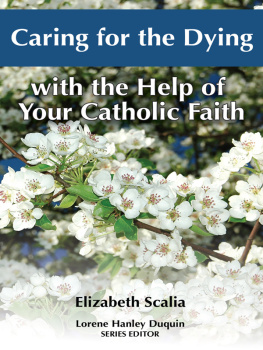
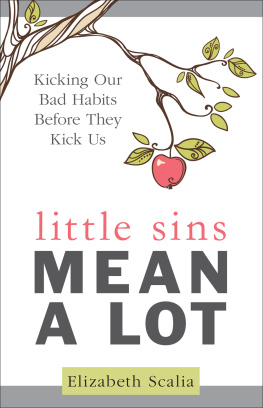
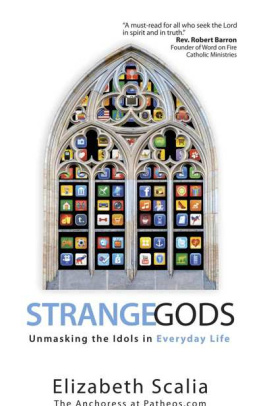

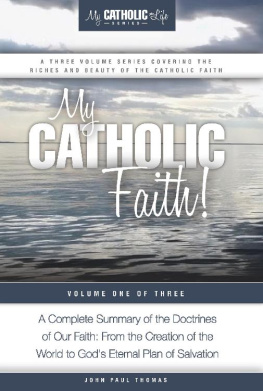
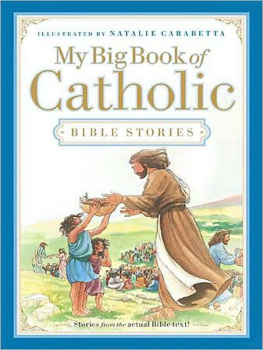
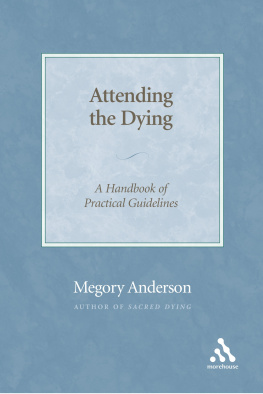
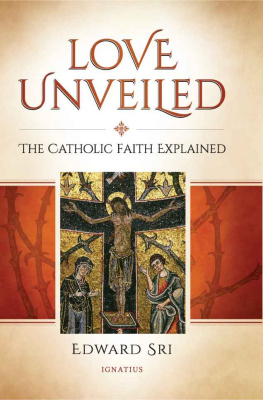
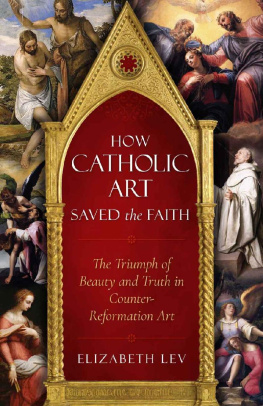

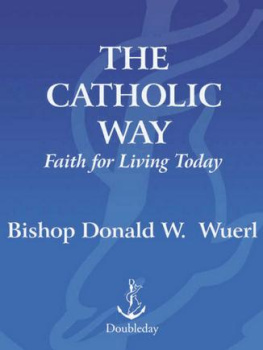
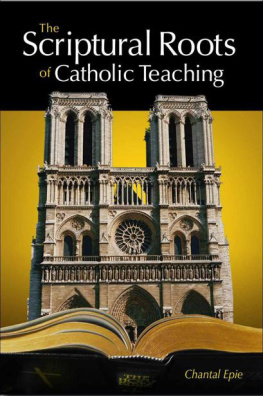
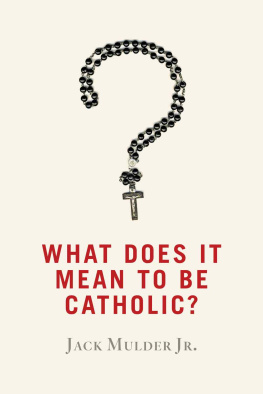
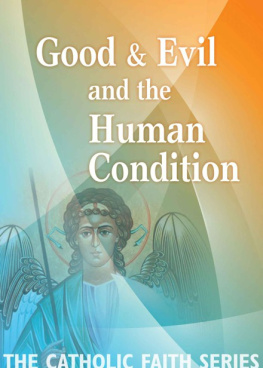

 John M. DArcy
John M. DArcy
 INTRODUCTION
INTRODUCTION 
